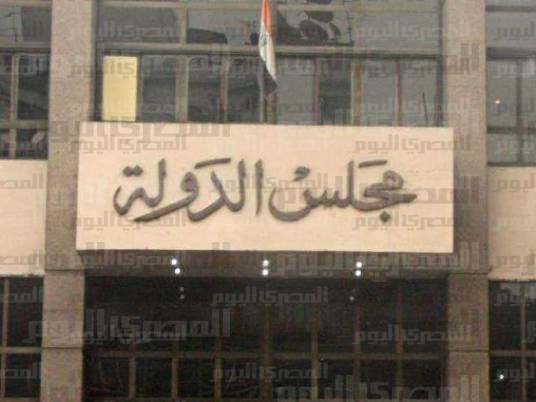
The Parliament's decision on Sunday to approve the draft amendments to the Judicial Authority Law, regarding how heads of judicial bodies are appointed, ignited a state of anger and resentment among masses of judges across all official bodies.
They called the law a violation of the independence of the judiciary and a waste of stable norms and traditions in choosing the head of each body according to the rule of seniority and not the choice as stipulated in the new amendments introduced to the law.
The crisis escalated within the State Council amid warnings for President Abdel Fattah al-Sisi to intervene and solve the crisis described by the judges of the Council as "fabricated and unjustified" at a time that raises a lot of suspicion.
Judicial sources familiar with the State Council said the approval of the amendments by the Parliament pushes the country into a dark tunnel and a new crisis during this sensitive stage in the country.
The sources, who asked not to be named, said there are many questions that increase the state of uncertainty and suspicion surrounding the law, the simplest of which is the timing of its proposal, followed by a retreat from any discussion of it — then suddenly the Parliament announced its approval.
The sources wondered how the previous text in the Judicial Authority Law may have caused harm to the Parliament or society as a whole, so as to resort to modifying it now.
They added that the proposal for these amendments only touched on the provisions for selecting heads of judicial bodies, although there are other more important portions that need to be amended.
The sources explained that the new draft law gives to the President the right to choose the head of each judicial body, particularly in the State Council; he can now choose the President of the Supreme Administrative Court, which deals with cases filed against the government, including the President himself.
The Supreme Administrative Court has jurisdiction over the most serious issues such as rights and freedoms, international agreements, and the privatization and sale of state land. The sources stressed that this law must have been passed without careful study or discussion.
The amendments did not specify the criteria on which the President will choose the heads of judicial bodies, but left them open without any framework or conditions for this choice, which is the greatest threat to the President of the Supreme Administrative Court, the sources said.
The sources added that there are several procedures discussed by the State Council, the most important of which is calling for an emergency General Assembly for all members of the Council to respond to this law and confirm its rejection in full, considering it unacceptable interference by the legislative authority in the affairs of the judiciary.
Edited translation from Al-Masry Al-Youm




